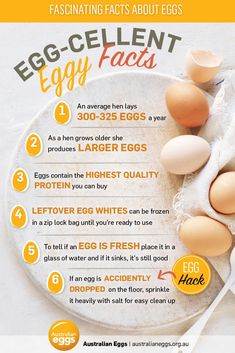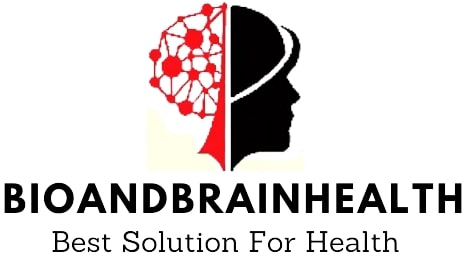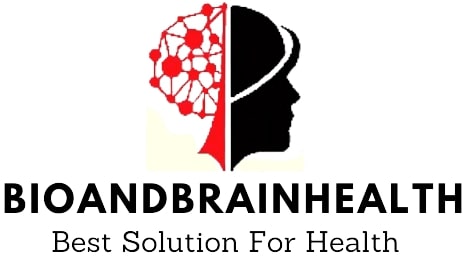Please enjoy the info Are eggs high in cholesterol, Eggs and cholesterol, Cholesterol in eggs, Low cholesterol eggs, Eggs and high cholesterol.
Eggs and cholesterol
Eggs and cholesterol: how many eggs a day are safe? Also, know about cholesterol in eggs, how much cholesterol is in an egg, and how many eggs are eaten.
Eggs include protein, fat, vitamins, minerals, and antioxidants, making them a nutritious food choice.
In parts of the globe, wherever eggs are excellent and accessible, many people eat them often or daily.
At some point, you’ll have detected that the sterol found in eggs contributes to cardiovascular disease—the leading reason for death worldwide.
Health authorities, medical groups, and nutrition groups promoted this misinformation for years, causing some to shun eggs.
It’s a fact that eggs have more cholesterol than many other foods. Still, they’re also rich in helpful bioactive chemicals and various disease-fighting nutrients.
Recent analysis suggests that the link between the consumption of eggs and elevated cardiovascular disease risk might not be as robust as once thought. However, there’s still productive dialogue on the subject. Regarding health, several experts have relaxed their recommendations on egg intake.
However, many people continue to fear that eating eggs may negatively impact their hearts. This article examines the link between egg consumption, sterol levels, and cardiovascular wellness.
It includes recommendations for several eggs you’ll safely eat, and UN agencies should consider limiting their intake.
Please Read This blog. how-much-protein-in-an-egg
Do eggs raise sterol levels? Eggs and cholesterol
Recent meta-analyses and empirical investigations suggest that eating eggs may not raise your risk of cardiovascular disease or its risk factors, such as inflammation, arterial stiffness, and high sterol levels.

A modest number of randomized controlled studies (RCTs) have shown comparable results, but often with study groups of 20–50 healthy individuals.
For example, one small randomized controlled trial indicated that eating two eggs or half a cup (118 mL) of liquid eggs for breakfast did not significantly affect blood sterol levels compared to eating an egg-free, high-carb meal.
Consuming 6–12 eggs weekly did not influence total blood sterol levels or cardiovascular disease risk factors in persons with polygenic illness.
The sterol levels of those who ate eggs for breakfast during a study were higher than those who ate other breakfast foods.
However, the LDL-to-HDL quantitative relationship—a biomarker ordinarily accustomed to assessing cardiovascular disease risk—remained unchanged.
Please Read This Blog, calories-are-in-an-egg
Nevertheless, studies have discovered links between egg intake, sterol levels, and the subsequent risk of chronic illness and death.

For instance, a recent meta-analysis of 17 randomized controlled trials indicated that people who consume a lot of eggs over a long time have greater sterol levels than those who eat less.
However, other research suggests that the risks associated with eating eggs are amplified when combined with high-sodium diets.
Other than eggs, this may embody yogurt, cheese, processed meats, and deep-fried foods. All in all, inconsistencies surround how eggs impact sterol and their overall effect on cardiovascular disease and mortality risk.
Several researchers concur that more human studies are necessary to resolve these questions.
Because current proof is conflicting, additional rigorous studies in humans are required to raise perception; however, consuming eggs affects blood sterol levels in numerous populations.
How many eggs a day are considered safe to eat? eggs and cholesterol
As we still tend to find out how eggs move with sterol and chronic diseases, it’s becoming increasingly clear that the chance related to several eggs’ consumption differs among people.
How much cholesterol is in an egg? Factors like genetic science, case history, how you cook your eggs, your total diet, and wherever you stay can impact the number of eggs you’ll securely consume daily.
How much cholesterol is in an egg? Check your diet for alternative sterol sources. Less sterol means more eggs. If you consume a lot of sterols, eat fewer eggs.
1–2 eggs daily are safe for a healthy adult with normal sterol levels and no cardiovascular disease risk factors. It’s going even to be nutritious and benefit your heart health.
Thirty-eight healthy people participated in short research that revealed eating as little as three eggs per day increased beta-lipoprotein and high-density lipoprotein levels and the LDL-to-HDL quantitative ratio.
Yet, professionals may refrain from prescribing two eggs daily, with others proposing that you carry on with one.
Research conducted on Korean people found that ingesting anything from 2 to 7 eggs weekly contributed to keeping cholesterin levels high and increasing the likelihood of developing metabolic syndrome.
Meanwhile, consuming two or more eggs daily didn’t have constant protective effects.
Metabolic syndrome includes increased vital signs, glucose, blood, and waist fat.
They all raise the risk of diabetes and heart disease.
Please Read This Great Info egg-yolks-good-or-bad
The risk might vary for various teams
Though having one or two eggs each day seems safe for many healthy adults, it’s necessary to notice that some analysis still suggests otherwise—significantly indeed.
One study in nearly 200000 U.S. veterans associated consuming simply one egg per day with a somewhat elevated risk of heart attacks.
How much cholesterol in an egg:
The effect was more pronounced in those with polygenic illness or excess body weight, suggesting that a person’s general health condition affects how many eggs they may safely consume.
Similarly, eating 2–4 eggs weekly may raise the risk of cardiovascular disease among adults in Europe and Korea, especially those with polygenic illnesses.

Another study checked out a sample of 100,000 U.S. adults and found that older adults with UN agency Greek deity with 5–6 eggs per week had a half-hour accrued risk of cardiovascular disease.
However, there is no assurance that the accumulated danger is due to eggs alone.
Age-related changes, including fat deposition and hardening of the arteries, raise the risk of cardiovascular disease regardless of egg consumption.
Therefore, it’s necessary to contemplate your overall image and health status once deciding what number of eggs are safe to eat.
Not exactly one egg per day or 4-5 eggs per week is recommended if you have high cholesterin levels, are overweight or obese, have a chronic condition like polygenic disease, or have a history of cardiovascular disease.
It is laborious to judge such completely different risk factors on your own.
Therefore, operating directly with a doctor, dietitian, or trained specialist is also the most effective, thanks to deciding what number of eggs are safe to eat daily or weekly.
Eating 1–2 eggs daily is safe for most healthy adults, depending on the proportion of different sterols in your diet.
If you already have high cholesterol or different risk factors for cardiovascular disease, eating not quite 4–5 eggs per week will be best.
Please Read This Great Info how-much-protein-in-an-egg
Is it better to eat egg whites alone? eggs and cholesterol
On average, one giant egg contains around two hundred mg of sterol.

The sterols are focused on the vitellus. Therefore, some people eat egg whites to reduce their sterol intake while still obtaining a decent supply of lean supermolecules.
However, it would help if you didn’t dismiss the vitellus attributable to its sterol content.
The vitellus is a nutritional powerhouse containing iron, vitamin D, and carotenoids.
The beneficial effects of eggs, such as lower inflammation, higher accumulated cholesterin, and enhanced metabolic health, are believed to be attributable to these bioactive substances.
Eating a coffee-carb diet with three whole eggs daily for twelve weeks enhanced inflammation and sterol balance indicators, as shown in research including 37 participants with metabolic syndrome.
Unfortunately, at this point, there isn’t abundant proof to support egg white consumption in healthy people. In fact, by avoiding the vitellus, you could be missing out on several of the healthy edges eggs ought to provide. Conversely, if you’re at high risk of cardiovascular disease or have already got high sterol, prioritizing egg whites and palliative proportion fixings you eat throughout the week might facilitate an additional increase in your sterol.
The yolk of an egg contains a wealth of nutrients, including sterol and beneficial fats, vitamins, and minerals.
So, consumption solely of egg whites to avoid the sterol from the vitellus could solely be necessary for folks at AN elevated risk of cardiovascular disease.
Eggs, cholesterol, and cardiovascular disease
Studies show that excessive sterol, saturated fat, and trans fat from any supply will increase blood sterol levels—significantly cholesterin—which raises your risk of cardiovascular disease.
The Dietary Pointers for Americans once suggested an overwhelming dose of not quite 200–300 mg of sterol per day, depending on your cardiovascular disease risk factors.
Breakfast with 2–3 eggs can send you beyond that limit. However, that advice has now been reiterated.
Now, constant pointers place no limit on the daily quantity of sterol in your diet.
Instead, they recommend limiting your intake to keep your blood sterol levels inside traditional limits, which is a personal quantity.
Though dietary sterol will raise beta-lipoprotein levels, it’s necessary to notice that it is simply one piece of the puzzle once it involves assessing a person’s overall risk of cardiovascular disease.
Eggs are high in sterol. However, they’re not the only food that affects cholesterin levels.
For instance, high blood sterol levels can also be a result of a diet that’s:
1. High in saturated fat. Saturated fats like butter, cheese, and processed meats raise cholesterol.
2. Secondly, it has a lot of trans fat in it. In nature, trans fats may take on a variety of forms. However, they’re typically unnaturally created and located in fast foods, food, processed margarine, and shortening.
3. Low in fiber. High-fiber foods, including oats, beans, peas, seeds, and fruit, may decrease cholesterin levels and minimize cardiovascular disease risk.
4. High-calorie content is the fourth issue. For certain people, reducing their overall caloric consumption, especially their fat intake, has been demonstrated to reduce cholesterol levels. Thus, once you decide what number of eggs it’s safe to eat daily or weekly, you must contemplate your whole diet.
Eating additional eggs will be OK if you don’t eat several different cholesterol-containing foods.
However, if you often consume eggs with various cholesterol-rich meals like bacon, sausages, or butter, it’s probably better to restrict your egg consumption.
This is because while eggs are rich in dietary sterol, they cannot boost blood sterol levels to the maximum as meals are heavy in saturated or trans fats.
Please Read This Great Info brown-vs-white-eggs-is-there-a-difference
Health edges of eggs
Eggs are reasonable, versatile, have a good supply of lean supermolecule, and are straightforward to organize.
They additionally provide several health edges outside the controversy encompassing their sterol content. Eggs:
1. Vitamin-rich. Particularly vitamin B, selenium, and B vitamins.
2. Rich in antioxidants. Antioxidants safeguard your body’s cells against harm produced by free radicals and related chronic disorders, including cardiovascular disease and cancer.
3. Believed to enhance some biomarkers of cardiovascular disease. These represent inflammatory indicators like interleukin-6 and serum globulin concentrations in the blood.
4. Sufficiently satiating and helpful for those trying to shed pounds. Eggs, with their high level of lean supermolecule, are also more satisfying than high-carb meals like cereal, which may help you feel full for a prolonged period and consume fewer calories overall.
Lastly, eggs may be ready deliciously in many alternative ways.

Vegetable omelets, frittatas, and breakfast burritos are delicious ways to enjoy them.
Boil, scramble, pan-fry, or poach them. Or you’ll use them in various dishes, such as shakshuka, stir-fries, sauces, and dressings.
When it concerns getting ready eggs, the lone boundaries area unit your creativity and your style buds.
Eggs aren’t solely an easy-to-prepare supply of supermolecules. However, they’re additionally nutrient-dense, assist you to feel full, and should even combat cardiopathy.
Please Read This Great Info can-you-reverse-heart-disease
Final Thought
Eggs comprise a nutritive supermolecule supply and a staple in several people’s diets.
Though they’re high in sterol, they even have several health-promoting qualities. Intake of 1–2 eggs daily is safe for healthy persons, provided that they are included in AN overall nutritional diet.
However, if you’re notably distressed concerning sterol levels or cardiopathy risk, operating with a trained, skilled doctor or a specialist is the best, thanks to verifying the number of egg area units is safe for you.









